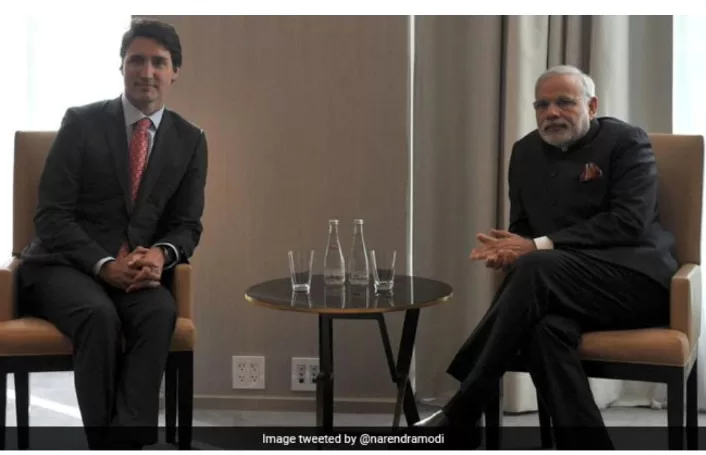United States President Joe Biden and other prominent Western leaders took the unprecedented step of expressing their concerns to Indian Prime Minister Narendra Modi during the recent G20 summit regarding Canada’s claims of Indian involvement in the assassination of Sikh separatist leader Hardeep Singh Nijjar, as reported by the esteemed Financial Times (FT)
Several members of the Five Eyes, an intelligence-sharing network comprised of Australia, Canada, New Zealand, the United Kingdom, and the United States, directly addressed the matter with Prime Minister Modi during the G20 summit, FT disclosed, citing information from three sources familiar with the summit discussions.
The FT report also highlighted that President Biden and other world leaders voiced their apprehensions after Canadian Prime Minister Justin Trudeau called upon allies to engage directly with Prime Minister Modi on this contentious issue.
While the White House did not provide immediate commentary on the FT’s report, a spokesperson conveyed the United States’ deep concernregarding the allegations.
It is imperative to note that India has staunchly refuted Canada’s claims, characterizing them as “absurd.” India’s foreign ministry has asserted that Canada has not shared any specific information about the murder of Hardeep Singh Nijjar, who met a tragic demise at the age of 45 when he was fatally shot outside a Sikh temple in Surrey, Canada, in June.
Hardeep Singh Nijjar, a plumber by trade, transitioned to a Canadian citizen in 2007. Notably, he was a vocal advocate for a Sikh homeland in India in the form of an independent Khalistani state and had been designated as a “terrorist” by Indian authorities in July 2020.
At the time of his unfortunate killing, Nijjar had been endeavoring to organize an unofficial Sikh diaspora referendum on independence from India.
Additionally, the Associated Press reported, citing an unnamed source well-versed in the matter, that the allegations implicating India’s involvement in Nijjar’s assassination were grounded in human and surveillance intelligence, encompassing signals intelligence pertaining to Indian diplomats in Canada.
Furthermore, the report from the Canadian Broadcasting Corporation (CBC), drawing from Canadian sources, also confirmed that no Indian official, when pressed privately, had repudiated the allegation suggesting Indian government complicity in Nijjar’s demise.
As of now, India’s Ministry of External Affairs has not yet issued a response to the CBC’s report.
The repercussions of Trudeau’s allegations were swift, resulting in the expulsion of diplomats by each country. This burgeoning dispute has placed Western nations in a delicate position, with Canada standing as a longstanding ally, while simultaneously, the United States and other Western nations seek to cultivate robust ties with New Delhi to counteract China’s expanding influence in the Asia Pacific region.
US National Security Adviser Jake Sullivan underscored on Thursday that there was no division between the US and Canada concerning Ottawa’s allegations of India’s involvement in Nijjar’s killing. Sullivan rejected any notion of a rift and emphasized the United States’ profound concern regarding the allegations.
Concurrently, the company responsible for processing Indian visas in Canada declared the suspension of visa services until further notice. This suspension implies that Canadian citizens, among the leading visitors to India, will not be able to travel to India unless they possess pre-existing visas.
While India and Canada have maintained robust defense and trade relations and share strategic interests in countering China’s global aspirations, India’s persistent concerns regarding Sikh separatist groups in Canada have historically strained bilateral relations.
It is noteworthy that in March, the Indian government summoned the Canadian high commissioner in New Delhi to express discontent over Sikh independence demonstrations in Canada. Although the Sikh uprising in northern India concluded decades ago, the Indian government has cautioned that Sikh separatists are seeking a resurgence.
SOURCE: NEWS AGENCIES







